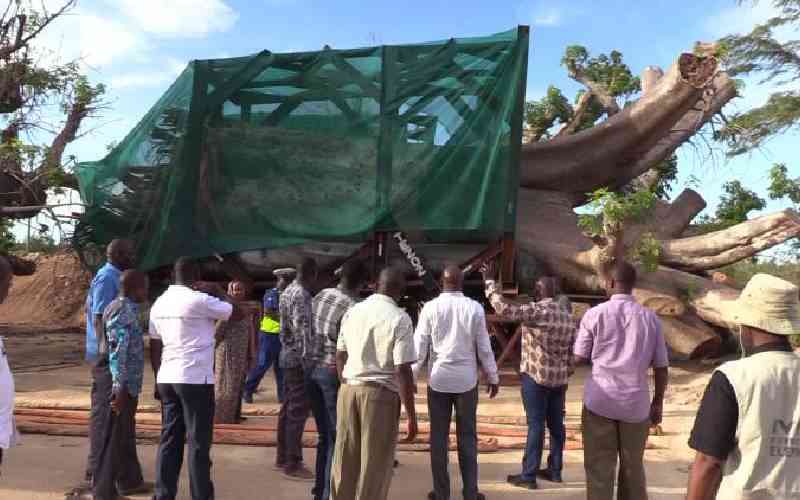×
The Standard e-Paper
Kenya’s Boldest Voice

National Assembly's Committee on Environment is investigating a controversial deal between villagers in Kilifi County and a foreigner exporting baobab trees to Georgia.
Baringo South MP and committee chairman Charles Kamuren said the probe would inform the House on laws to enact to protect the tree although its not listed among endangered species.